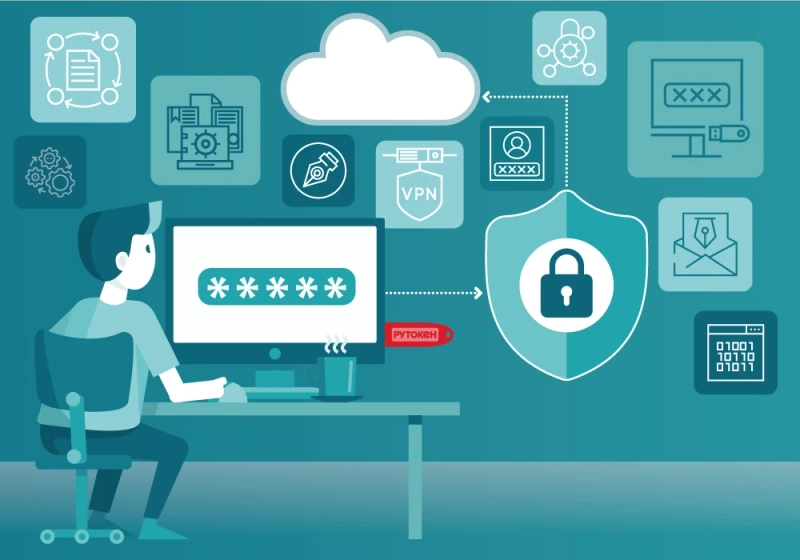The modern world has become highly reliant on technology, making cyberattacks like phishing rampant and extremely common. In phishing, the attacker impersonates a brand or trusted individual to dupe unsuspecting victims and steal sensitive data and huge sums of money. Phishing is of various types; one of them is spear phishing.
What is Spear Phishing, and what is its impact?
Attackers use emails to steal data and money from employees. Research states that workers are more than 30% likely to open a phishing email. These spear-phishing campaigns are highly dangerous and inflict massive damage. In a single spear-phishing campaign, an average of 1.6 million dollars is lost to malicious hackers.
Data released as a result of business breaches are used by cyber attackers to compile a possible target list. Prior to the attack, they spend time building phony websites of well-known companies that consumers utilize and trust. They then begin sending emails with a sense of urgency, such as security alerts, tax time demands, and so on. To win the victim\'s trust, these communications are purposefully customized. Once they\'ve gained the victim’s trust, the attacker executes their plan to steal money and sensitive data.
According to a recent estimate, 35% of companies throughout the world were targeted by spear phishing scams in 2020. According to the FBI, spear phishing is the most prevalent type of phishing employed in cyberattacks worldwide. As a result, massive databases and millions of dollars are lost. This may be mitigated by using DMARC, which strengthens email security requirements.
According to Microsoft’s New Future of Work Report:
- Since the move to remote working began, 80% of the security experts who were questioned confirmed an increase in security risks.
- Phishing efforts have risen more than any other form of cybercrime, according to 62% of those polled.
- It was agreed that if employees had been working in the office, IT departments would be able to prevent these phishing attempts.
It is clear that brands need urgent protection from cyber attacks like spear phishing. Fortunately, email authentication protocols are paving the way for large organizations to increase their email security. DKIM, SPF, and DMARC implementation can help brands fight phishing attacks and safeguard their employees, customers, clients, and reputation.
DKIM
DKIM (DomainKeys Identified Mail) is an anti-tampering protocol that protects the security of your email while in transit. It utilizes digital signatures to verify that an email was sent from a legitimate domain.
DKIM adds a digital signature to an email message\'s header. This signature may be verified using a public cryptographic key stored in the organization\'s DNS records. In the DKIM procedure, the public key is created as a TXT record for the domain\'s DNS Manager (registrar of the domain or DNS Provider).
SPF
SPF (Sender Policy Framework) is an email authentication mechanism that allows a domain owner to define which email servers are allowed to deliver emails from their domain. SPF allows the destination email server to check if an email claiming to be from a certain sender is actually from an IP address that is allowed to send emails on behalf of the domain.
Messages sent from a company\'s domain that isn\'t set with SPF are more likely to be marked as spam by recipient mail servers. DKIM and DMARC, in addition to SPF, are suggested for enhanced domain security and email deliverability.
DMARC
The DMARC (Domain-based Message Authentication, Reporting, and Conformance) standard is an email authentication standard that assesses whether or not an email is genuine. The authenticity is determined using SPF and DKIM protocols. It offers improved deliverability and protection against spoofing, phishing, and impersonation attacks by offering visibility of the original source of an email.
Protection Against Phishing
SPF, DKIM, and DMARC protocols ensure that outbound and inbound emails are legitimate and not a work of malicious hackers.
DKIM prevents your email from being tampered with while in transit, eliminating the threat of hackers rewriting or redirecting the email. The pair of private and public keys are matched during delivery to authenticate the email.
SPF, on the other hand, makes sure that only those domains that have been authorized by you are used for sending emails. This bolsters the email ecosystem, wherein no third party can send an email on your behalf without your knowledge.
Lastly, DMARC works best in alignment with both SPF and DKIM, providing deliverability and complete email security. The user can set the DMARC policy to reject, quarantine, or none. Depending on the policy the domain user chooses to publish, the email is either accepted, rejected, or quarantined before it can enter the user’s inbox.
Original Source :-https://emailauthofficial.tumblr.com/post/662489287257948160/protect-brand-customers-from-spear-phishing



